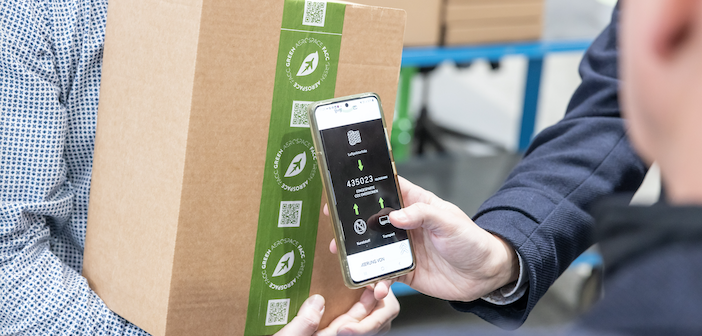FACC commits to sustainable packaging

FACC, an aerospace supplier with contracts including cabin elements developed for the Airspace by Airbus scheme, has implemented a new sustainability strategy with a focus on packaging. The company packages thousands of aircraft parts every month, with high transport volumes, so optimisation of these operations can have a large effect on environmental sustainability. A key development is FACC’s introduction of a new and sustainable packaging concept, part of the company’s aim to achieve carbon-neutral manufacturing by 2040.
For smaller parts, only packaging and filling material made of recycled cardboard are now used, with plastic eliminated – a significant move, as FACC uses approximately 100,000 m2 of cardboard packaging per year.
For larger packages, often destined for delivery overseas, or containing complex systems requiring additional filling material, the company is now using air cushion foil produced in-house from sustainable materials.
The foil has a recycled content of 40% and is produced in a 100% carbon-neutral process. The foil is only inflated with air once it has reached its destination, requiring around 25-times less space in transport vehicles than pre-inflated foil. According to FACC, this measure alone saves 30 truck trips per year, amounting to CO2 savings of approximately 40 metric tons – equivalent to the consumption of around 20 single-family homes per year.
The foil was tested and certified by FACC specifically for use in aviation. Two newly acquired machines will supply the company’s logistics teams with the sustainable packaging material in the future. For the past three years, FACC has also been using sustainable eco-liners for transport. Including these liners, FACC says its annual CO2 savings amount to more than 400 tons.
“In the best case, greater sustainability goes hand-in-hand with greater efficiency,” stated FACC’s CEO, Robert Machtlinger. “With these measures, we have not only minimised our environmental footprint, but also cut costs.”
For transport within Europe, FACC has already been using round-trip boxes instead of packaging material for a few years. These boxes are unloaded by the customer, returned to FACC, and then reused for shipping.
Customers of FACC may be interested in how these savings benefit their own sustainability figures, so a QR code on each package allows them to access CO2 savings figures.
The company is looking further, with the aim of making all FACC production processes carbon-neutral by 2040. In order to achieve this goal, FACC is currently working on a number of small and large projects. For example, space heating is supplied solely by geothermal energy and heat recovery, and in addition to the company’s own photovoltaic system, the company only sources electricity from hydropower. Energy-saving LEDs are used for facility lighting.
